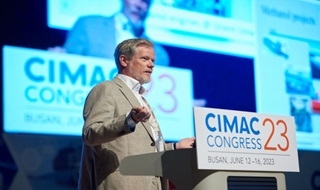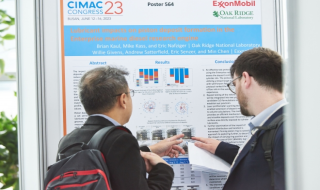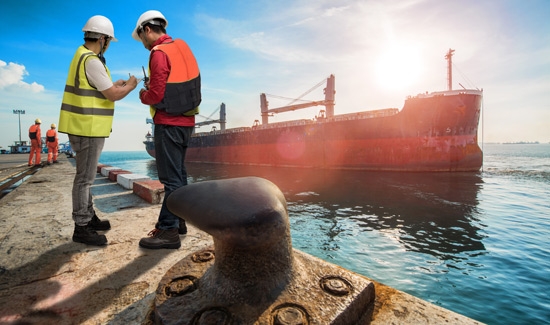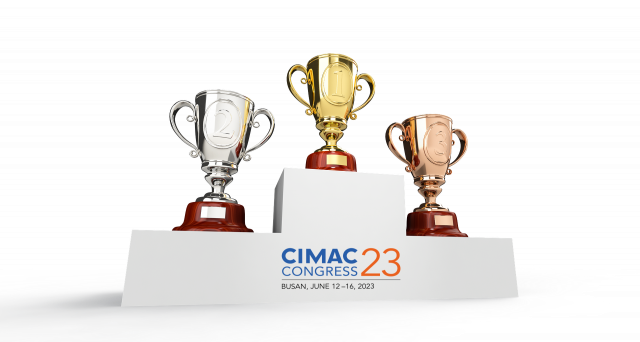Dear Colleagues and Partners,
The organizers of the 31st CIMAC World Congress sincerely invite you to submit your proposals in the fields of power, drives, propulsion technology. The topic streams for the event are detailed in the 'Call for Papers' below.
The Congress takes us this time to Zürich, Switzerland, from Mai 19-23, 2025. Switzerland, with its strong industrial portfolio of engine manufacturers and suppliers, will be an excellent host.
There is no doubt that our industry continues to face enormous challenges but at the same time it also provides great opportunities. Our industry is well positioned to contribute to a sustainable future and to this end a holistic technical view and the direct exchange on challenges, approaches and solutions is essential. We look forward to your contribution and to welcoming you to the CIMAC Congress 2025 in Zürich, where the congress will once again provide a unique opportunity to meet manufacturers, colleagues and customers from across the industry and from around the world.

Jonas Åkermann
Vice-President Technical Program
Wärtsilä, Finnland

Klaus Heim
Vice-President Technical Program
OMT, Italy
CIMAC will offer traditional 20 minute long presentations which will be complemented by Pecha Kucha presentations to mix up the congress program. Posters including a special timeslot during the breaks to present the poster are going to be part of the congress too. This main programme will be embedded in discussion panels, key note speeches, and plenty of networking opportunities.

20 slides, each slide is shown for exactly 20 seconds, then the presentation automatically jumps to the next slide! This fast paced format focusses on just a few key points in the presentation and therefore sticks in people's minds particularly well.
The advantage for the author is that no paper has to be written. Presentations can therefore be submitted relatively easily. Only the abstract is enough to get the chance of a presentation slot. In addition, the slide set must be submitted before the congress.

Traditional presentations will once more be avaiable. 15 minutes for your presentation and an additional 5min for questions and answers afterwards. This detailed format gives you the opportunity to present new findings in detail.

The Poster Session will be avaiable to visitors throughout the entire congress. On top of that the programm will feature each poster with a special timeslot, so that the author may present his findings to the interested autdience in detail and can answer upcoming questions.
Due to that physical presence is mandatory for poster authors too.

We expressly invite you to submit papers that are of importance to operators. It is our aim to offer some sessions specifically for this target group. In particular, safety issues, ensuring the continuous availability of the systems, maintenance and regulatory issues are of importance here.
Looking at the industry from the customer's point of view will lead to new insights and solutions!

Three authors will again be selected to gain an award for their contribution to the CIMAC congress. Drawing your attention to the Congress 2023 Awards for three outstanding papers presented (Best Paper, President's Award, and Best Poster). Exciting prizes to be won, so here is encouraging all potential authors to put your best foot forward and compete amongst the best from the industry.
Winners at CIMAC Congress 2023, Busan:
Best Paper Award - Luc Mattheeuws, Anglo Belgian Corporation NV
President's Award - Daniel Chatterjee, Rolls-Royce Power Systems
Best Poster Award - Menghao Ma, Tianjin University
How it works - Submission of Abstracts
We welcome abstract proposals to the proposed topics until Sunday, June 30th, 2024. The abstracts (150 to 500 words) shall outline the major content of the final paper and incorporate new research and findings not previously published. The Congress Technical Program Committee will review all abstracts to assess their suitability for acceptance to the Congress 2025 Technical Program and a presentation at the event.
Abstracts shall answer the following questions:
-
What is the problem you address?
-
What method(s) do you use?
-
What data do you use?
-
Which (intermediary) findings will you discuss?
For Pecha Kucha Presentations we also kindly ask you to submit an abstract. Pecha Kucha presentations will not require creating a paper.
Special poster sessions will be offered. In case authors are explicitly interested in presenting a poster, this can be indicated during the submission of your abstract proposal.
Upon acceptance to the Congress Technical Program, the instructions for writing a Paper will be sent to all accepted authors. These instructions describe in detail the procedure of writing your paper and its layout with a template, submission of your paper in the Electronic Paper System (EPS), communication with the reviewers, the review process as well as rules regarding publication.
After receiving your acceptance, full-length papers for presentations and posters shall be submitted . Pecha Kucha Presentations are also handled via the EPS system, but do not require creating a paper.
Electronic Paper System (EPS)
The abstract proposals are to be submitted electronically via the ‘Electronic Paper System’ (EPS). Registration to the EPS is open from April 2nd to June 30th 2024, please proceed to do so by clicking on ‘Submit Abstract’ below or by using the following link to the EPS - https://eps.cimaccongress.org.
The abstract usually is around 1/2 of a Din A4 page long. Papers are usually around 15 pages long using a Word-Ttemplate from CIMAC. The full paper needs to be submitted until Jan 15th, 2025.
A manual for the Abstract Phase has been published in the EPS for efficient use of the system.
For any questions or clarifications regarding the 'Call for Papers', please write in to us at cfp@cimac.com.
We look forward to receiving your abstract proposals and hope to see you at the 31st CIMAC World Congress 2025 in Zürich, Switzerland.
Note for academic researchers:
We will be able to offer a DOI for papers if required. We are working on a solution for Scopus indexing, but do not have a final solution yet.

Project Manager - Technical
Phone: +49 69 6603 1149
cfp@cimac.com
(For Congress Technical Program Topics)

Project Manager
Phone: +49 69 6603 1143
Hatice.Altintas@vdma.org
(For Congress Organizational Topics)